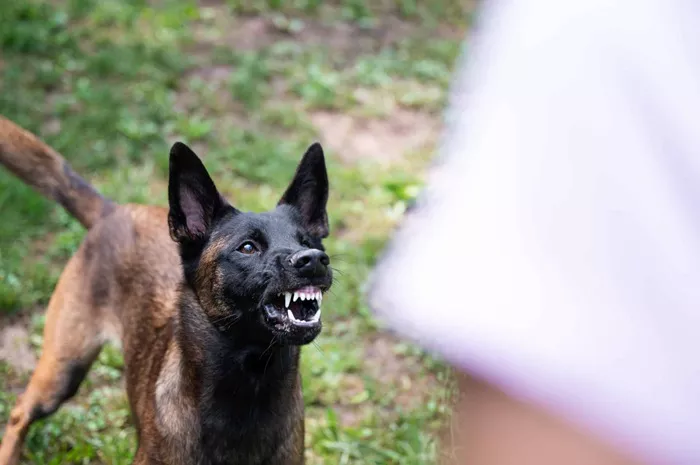Belgian Shepherds are a group of herding dogs originating from Belgium. They are divided into four varieties based on coat type and color: Groenendael (long black coat), Tervueren (long fawn or gray coat), Malinois (short fawn coat), and Laekenois (wire-haired fawn coat). Known for their intelligence, agility, and loyalty, these dogs excel in roles such as police work, search-and-rescue, and companionship. However, their strong physique and alert demeanor often lead to misconceptions about their temperament, particularly regarding aggression.
Understanding Aggression in Dogs
Aggression in dogs is a complex behavior influenced by genetics, environment, training, and health. It can manifest as defensive behavior (e.g., fear-based aggression) or offensive behavior (e.g., territoriality). For Belgian Shepherds, their natural instincts as herding and guarding dogs may amplify certain behaviors, but this does not inherently make them aggressive.
The Temperament of Belgian Shepherds
Loyalty and Protective Instincts
Belgian Shepherds are deeply loyal to their families and highly alert to strangers. Their protective nature makes them excellent watchdogs, as they will closely monitor unfamiliar people or situations. However, this vigilance does not equate to aggression. Most Belgian Shepherds will not attack unless they perceive a direct threat to their owners or territory.
For example, one study noted that Belgian Shepherds exhibit “fearful behavior” or “excessive attention-seeking” during stressful situations, which could be misinterpreted as aggression. However, these reactions are often linked to anxiety rather than inherent hostility.
Intelligence and Trainability
Their high intelligence allows Belgian Shepherds to learn commands quickly, but it also means they require consistent mental and physical stimulation. Without proper training, their energy and curiosity may lead to destructive behaviors, such as chewing or barking. Proper socialization from puppyhood is critical to ensure they remain calm around strangers and other animals.
Energy Levels and Exercise Needs
Belgian Shepherds have intense energy levels due to their working-dog heritage. Daily exercise—such as running, agility training, or interactive play—is essential to prevent boredom. A lack of activity may result in frustration, which can escalate into reactive behaviors like nipping or lunging.
Factors Influencing Aggressive Behavior
Poor Socialization
Puppies not exposed to diverse environments, people, or animals may develop fear-based aggression. For instance, a Belgian Shepherd raised in isolation might bark excessively or snap at strangers due to unfamiliarity.
Inadequate Training
Owners who fail to establish leadership or use harsh punishment risk creating anxiety or defiance in their dogs. Positive reinforcement methods, such as treats and praise, are more effective in shaping desirable behaviors.
Health Issues
Epilepsy, a neurological disorder prevalent in Belgian Shepherds, has been linked to stress-induced seizures. While epilepsy itself does not cause aggression, the confusion or pain during seizures might provoke defensive reactions.
Genetic Predisposition
Some lines of Belgian Shepherds, particularly those bred for protection work, may exhibit stronger guarding instincts. Responsible breeders prioritize temperament testing to minimize the risk of passing on overly reactive traits.
How to Prevent Aggression in Belgian Shepherds
Early Socialization
Expose puppies to various stimuli (e.g., crowds, traffic, other pets) between 3 and 14 weeks of age. Reward calm behavior to build confidence.
Structured Training
Teach basic commands like “sit,” “stay,” and “leave it.” Advanced training in obedience or dog sports can channel their energy constructively.
Regular Exercise
Aim for at least 1–2 hours of physical activity daily. Activities like fetch, hiking, or agility courses keep them mentally and physically satisfied.
Addressing Fear or Anxiety
If a Belgian Shepherd shows signs of stress (e.g., pacing, growling), identify triggers and gradually desensitize them. Consult a veterinarian or behaviorist for severe cases.
Health Monitoring
Regular vet check-ups can detect conditions like epilepsy early. Managing health issues reduces the likelihood of pain-related aggression.
Comparing Belgian Shepherds to Other Breeds
Belgian Shepherds are often compared to German Shepherds due to similar roles and appearances. However, Belgian Shepherds tend to be lighter and more agile. While both breeds are protective, Belgian Shepherds are generally less prone to territorial aggression when properly socialized.
Real-Life Scenarios: When Aggression Occurs
In rare cases where a Belgian Shepherd becomes aggressive, follow these steps:
Stay calm: Avoid screaming or running, as this may escalate the situation.
Block eye contact: Turn sideways to appear less threatening.
Use distraction: Throw a jacket or bag to divert attention.
Seek help: Contact animal control or a professional trainer if the behavior persists.
Conclusion
Belgian Shepherds are not inherently aggressive. Their behavior is shaped by genetics, upbringing, and environment. With proper training, socialization, and care, they become loyal, well-adjusted companions. Misunderstandings about their temperament often stem from their alertness and energy, which can be managed through responsible ownership. By meeting their physical and emotional needs, owners can ensure these remarkable dogs thrive in family settings.
Related Topics:
WHEN IS AN ANATOLIAN SHEPHERD FULL GROWN
ARE SCHNAUZERS GOOD GUARD DOGS?
HOW TO TRAIN YOUR BASSET HOUND LIKE A POLICE DOG


